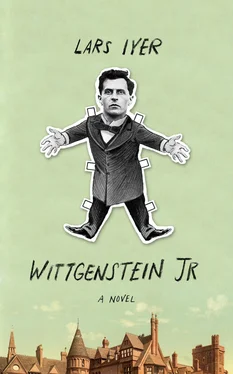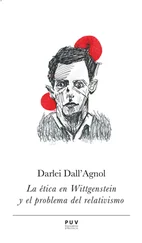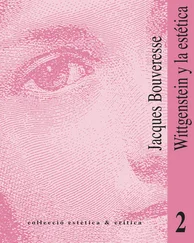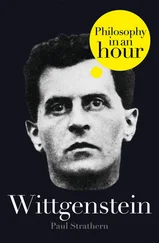What does it matter what we think?
His questions!
Might it not also be the case that …?; Is it worth admitting the possibility that …?
Doesn’t he understand we just want to get things right ? To do well ? To get high marks ? The rest, all of philosophy, doesn’t really matter …
But he demands our attention. He addresses us directly. Okulu, what do you understand by this? Doyle, can you think of a way out of this apparent dilemma?
He asks us the kinds of questions that he would ask himself. Questions beyond our understanding. Questions that soar above us. Questions that graze the philosophical sky … We try to answer, but how can we? We stumble. We stutter. We say silly things. But what else does he expect?
Wittgenstein does not hide his derision.
He knows the Cambridge student is encouraged to talk, he says. He knows the Cambridge student is to be treated as an intellectual partner, even as an intellectual equal , he says. He knows he’s supposed to take heed of whatever nonsense the Cambridge student utters. He knows he’s supposed to say interesting to even the most fatuous point.
He knows he’s supposed to glory in the very fact that we can speak, that we say anything at all, that we’ve even turned up for class, he says. He knows he’s supposed to clap his hands in delight , that the Cambridge student has deigned to add his voice to the great tradition of philosophy .
He knows he’s supposed to fall upon the most trivial comment as though it were uttered by Immanuel Kant , he says. He knows he’s supposed to nod seriously to every word that drops from our lips, as though it were Kant himself who was speaking. He knows all this, he says.
He watches our faces, he says. He looks for signs of understanding. But what does he see? Nothing! Nothing!
What do we know of the struggle to think? What, when everything has come to us so easily? That’s how he sees us, he says: as those to whom everything has come easily.
What do we know of the desire to think? Of the love of wisdom?
Perhaps we are simply too young for philosophy, he says. Too blithe. We haven’t yet run up against life’s difficulties , he says. Against the tragedy of life . You can see that in our faces, he says. We know nothing of life’s calamities —of madness, suicide, all that.
In a sense, our indifference to philosophy is a kind of liberation , he says. It is lightness itself. We do not know the gravity of thought. We feel no philosophical weight. We walk like astronauts on the moon, in great blithe leaps, in huge bounds. Nothing keeps us to the surface of our studies. Nothing holds us down.
Once, it was possible to learn things, and to be shaped by your learning, he says. Once, to be a student meant to be formed by what you learned. To let it enter your soul. But today?
We’re drowning in openness, he says. In our sense of the possible. We’re ready to take anything in — to learn about anything, and therefore about nothing . Everything is available to us, and therefore nothing is available to us. Everything is at our disposal, and therefore nothing is at our disposal. We are infinitely open-minded, which is to say, infinitely closed-minded.
Our sense of our own potential —he sees it in us. Our sense of our youth . Our belief that the world lies open before us . Don’t we understand that it is our very sense of potential that is the problem? That it is our very sense of youth that is the problem? That it is our sense that the world lies open before us that is the problem?
• • •
There was a time when learning awoke unknown desires, he says. Desires for what lay outside you, outside your grasp.
There was a time when students knew how to reach , and that they had to reach.
And now? Before our desires even coalesce, they are answered. Before our desires become desires, they are satisfied. Our desires are met before we even have them.
There’s no yearning, for us. No sense that something lies beyond.
Joy, joy, joy, tears of joy : that’s what Pascal had inscribed on his posthumous memorial, Wittgenstein says. Those who know nothing of grief can know nothing of joy, either.
Ede, hand in the air. Wittgenstein ignores him.
He knows how we live, he says. He knows how we do not live .
Drinking doubles and trebles at bars in which we cannot hear ourselves speak. Drinking doubles and trebles because we have absolutely nothing to say to one another.
We drink because we do not live, he says. Because we have no idea what it means to live.
He’s heard the thump-thump of our music. He’s heard our drunken laughter.
We’re guzzlers, he says. Devourers. Cambridge is a trough, and we are its pigs.
How disgusting we are! How filthy —morally speaking! Actually speaking.
We’re stupid, he says. Shallow. We’re without soul. Without insight .
Do we know it? he wonders. Do we have any idea of it? Do we sense what we lack? Do we understand that life’s seriousness lies far beyond us? Is that why we drink ourselves into insensibility? Why we deaden ourselves? Is that why we half destroy ourselves, and leave the contents of our stomachs on the courtyard flagstones?
No, we have no sense of what we lack, he says. Life’s seriousness means nothing to us.
Pints of Weissbier in the Free Press .
KIRWIN A: Why does Wittgenstein think we’re such idiots? We got into Cambridge, for fuck’s sake! That’s got to count for something.
MULBERRY: Well— he’s obviously suffered for his thought. Now it’s our turn.
KIRWIN B: But why should we bother to suffer? It’s not as if he’s a great advert for the philosophical life.
ME: Maybe we are a bit too proud. Or stupid. Or whatever else it is he says. Maybe we do need some discipline.
EDE: You, Peters, are a masochist. I don’t mean a sexual masochist. You’re a thought masochist, which is much worse.
MULBERRY: Peters thinks Wittgenstein is our very own genius. I’ve seen the way you look at him, Peters! Like a swooning schoolgirl!
ME: And what if he is a genius?
KIRWIN A: I don’t know … I think it’s all theatre, all smoke and mirrors.
MULBERRY: It probably takes a genius to know a genius. Otherwise, it’s just blind faith.
ME: Then I have faith. We all do — why else do we come to class?
KIRWIN B: To watch a nervous breakdown, that’s why. A slo-mo nervous collapse. We’re voyeurs.
EDE: No — we come to class to try to discover why it is we continue to come to class.
KIRWIN A: Oh, very fucking clever, Ede.
Benwell’s mutiny.
Wittgenstein wants to become a kind of mirror for us, he says. A mirror in which we can see the shortcomings of our own thinking. Of our own temptations of thought. Of our own philosophical temptations .
Benwell, clicking and unclicking his pen. Benwell, tutting. Shuffling his papers.
BENWELL (interrupting): This is all nonsense! None of this means anything!
Wittgenstein looks at him calmly.
BENWELL: I’m tired of all this posh boy SHITE.
DOYLE: Do shut up, Benwell!
BENWELL (to Doyle): Don’t you fucking start!
DOYLE: Start what?
The Kirwins stir menacingly in their seats.
BENWELL (leaving): Fuck the lot of you.
The Maypole , after class.
Benwell’s going to kill us all, Doyle says, he’s sure of it. Ede says he’d quite like to be poor and northern, and full of bitterness. He’d start a band. He’d sing about being poor and northern, and full of bitterness …
Читать дальше












